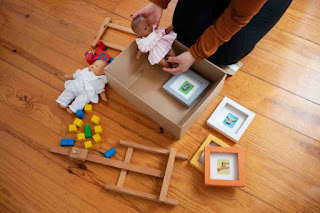Guide to Incorporating Montessori Wooden Toys in Homeschooling
Homeschooling has become an increasingly popular choice for parents seeking a personalized and hands-on educational approach for their children. Montessori education or Best wooden montessori toys, known for its emphasis on child-led learning and hands-on experiences, aligns seamlessly with the homeschooling philosophy. One effective way to integrate Montessori principles into homeschooling is by incorporating Montessori wooden toys. These simple yet thoughtfully designed toys offer a range of benefits that align with the Montessori philosophy and enhance the homeschooling experience.
Montessori Wooden Toys: A Brief Overview
Montessori wooden toys are crafted with natural materials, providing a tactile and sensory-rich experience for children. These toys are designed to encourage independent exploration, creativity, and skill development. Unlike flashy, plastic toys with predetermined functions, Montessori wooden toys allow children to engage in open-ended play, fostering a deeper understanding of concepts and promoting holistic development.
Sensory Stimulation
Montessori wooden toys engage multiple senses, offering a tactile experience that promotes sensory exploration. The textures, weights, and temperatures of wooden toys provide valuable sensory input, aiding in the development of fine motor skills and sensory perception.
Open-Ended Play
Unlike toys with specific functions or predetermined outcomes, Montessori wooden toys are open-ended, allowing children to explore and create according to their interests. This fosters creativity, problem-solving skills, and independent thinking, vital aspects of Montessori education.
Fine Motor Development
Montessori wooden toys often involve intricate movements, encouraging the development of fine motor skills. Activities such as stacking, sorting, and manipulating small objects contribute to improved hand-eye coordination and dexterity.
Focus and Concentration
The simplicity of Montessori wooden toys encourages prolonged engagement, promoting focus and concentration. These toys support the development of attention span, a crucial aspect of successful homeschooling.
Natural and Safe
Crafted from natural materials, Montessori wooden toys are non-toxic and safe for children. This aligns with the Montessori philosophy's emphasis on creating environments that reflect the natural world, fostering a sense of connection to the environment.
Incorporating Montessori Wooden Toys into Homeschooling
Create a Prepared Environment
Establish a dedicated space within your homeschooling area for Montessori wooden toys. This environment should be organized and accessible, allowing children to choose activities independently and practice responsibility.
Follow the Child’s Interests
Pay attention to your child’s interests and introduce Montessori wooden toys that align with their curiosities. This child-led approach promotes a love for learning and encourages a deeper exploration of specific subjects.
Rotate Toys Regularly
To maintain a sense of novelty and sustain interest, rotate Montessori wooden toys regularly. This prevents overstimulation and encourages children to engage more deeply with each toy.
Integrate Learning Concepts
Montessori wooden toys can be used to introduce or reinforce various educational concepts. For example, counting and sorting activities with wooden blocks, or introducing geometric shapes through wooden puzzles.
Encourage Independence
Montessori education emphasizes independence, and wooden toys support this by being easily manageable by children. Encourage them to take responsibility for their toys, promoting a sense of ownership and autonomy.
Outdoor Exploration
Montessori principles extend beyond indoor activities. Take advantage of outdoor spaces for nature-based Montessori wooden toys. Items like wooden bug catchers or gardening tools can enhance learning through outdoor exploration.
Family Engagement
Incorporating Montessori wooden toys into homeschooling provides an opportunity for family engagement. Participate in activities, play games, and explore together, fostering a supportive and collaborative learning environment.
Document the Learning Journey
Keep a record of your child’s engagement with Montessori wooden toys. Document their discoveries, creations, and any observations regarding their development. This documentation serves as a valuable tool for assessing progress and adjusting homeschooling strategies.
Conclusion
Montessori wooden toys offer a valuable resource for homeschooling parents seeking an enriching and holistic educational experience. By aligning with Montessori principles, these toys promote independent exploration, creativity, and skill development. Integrating Montessori wooden toys into homeschooling not only supports a child’s academic growth but also nurtures their love for learning in a natural and engaging way.



Comments
Post a Comment